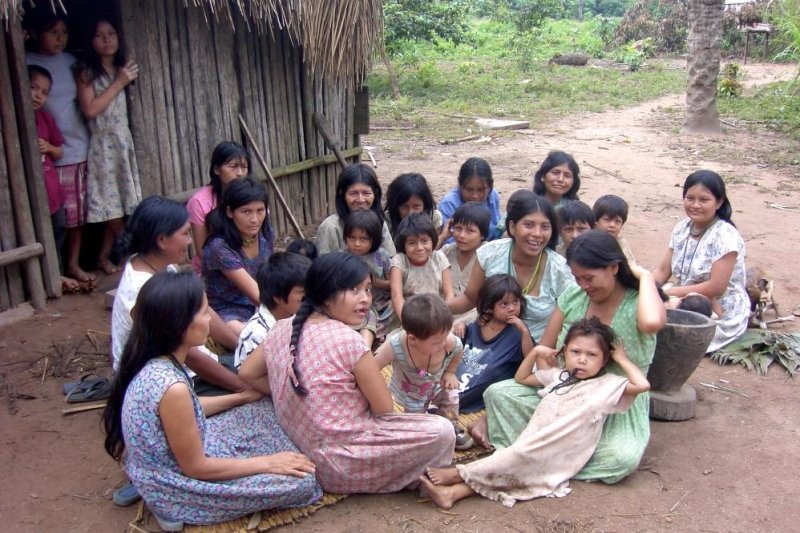The Tsimane population, some of whom are seen above, doubles every 17 years because women in the native Bolivian population have an average of nine children each. Photo by Michael Gurven/University of California Santa Barbara
SANTA BARBARA, Calif., Nov. 20 (UPI) -- A family of parasitic intestinal worms called helminths can have positive and negative effects on a woman's fertility, scientists found while studying the Tsimane population in Bolivia.
Researchers from the University of California Santa Barbara studied the effects of infection with roundworm and hookworm, each of which appeared to have a different effect on the number of pregnancies in women in the native population.
Tsimane women often are unaware they've been infected because there often are no symptoms, however these women show levels of increased immune response, and being infected with either of the worms has an effect on the chances of infection with other parasites or diseases.
Previous studies have shown the role of the immune system in pregnancy, as it adjusts itself to allow for the growth and function of a fetus in a pregnant woman's body.
"This study examines yet another domain where helminths and their regulatory effect on the immune system may be relevant to broader aspects of health and well-being," said Michael Gurven, an anthropology professor at UCSB, in a press release. "Although we don't know the precise mechanism behind these results, our findings are still compelling and suggest that immune modulation -- via our 'old friends' the intestinal worms -- can have far-reaching effects on the body, even though the findings may be less applicable in developed populations where women only have a few children over their lifetime."
The researchers analyzed nine years of data collected on 986 Tsimane women, about 70 percent of whom were infected with either hookworm or roundworm, the two most common forms of the parasite.
Overall, women infected with roundworm were more likely to get pregnant, and those with hookworm were less likely. The average Tsimane woman has nine children but women with hookworm had three fewer children than those without it, and women with roundworm had two additional children.
"These opposing effects are likely due to helminth infection affecting the immune system, which in turn affects the likelihood of conception," Blackwell said. "Our findings suggest that helminth infections may have substantial effects on demographic patterns in developing populations. Further, these results may also have implications for fertility in developed populations, where many fertility problems are connected to autoimmune disorders."
The study is published in the journal Science.















